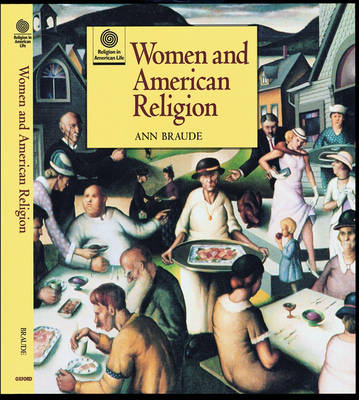Religion in American Life
2 total works
An old African-American churchgoers' saying rings true for most religious denominations in the United States: "Women are the backbone of the church." For centuries, women have been the majority of members in almost all religious groups. They provide essential financial and social support and work tirelessly in the background of all church-based activities. Yet it is largely men who occupy the high rungs of church hierarchy, and they are the ones who get most of the
credit. Ann Braude examines the important role of women in American religious history, focusing on their recent admission to public religious leadership and their fight for equal rights and recognition
through the centuries. Both noted and little known women--such as Margaret Winthrop, Jarena Lee, Mary Baker Eddy, Henrietta Szold, Aimee Semple McPherson, and Mary Daly--spring to life in the pages of this thorough, passionate book.
credit. Ann Braude examines the important role of women in American religious history, focusing on their recent admission to public religious leadership and their fight for equal rights and recognition
through the centuries. Both noted and little known women--such as Margaret Winthrop, Jarena Lee, Mary Baker Eddy, Henrietta Szold, Aimee Semple McPherson, and Mary Daly--spring to life in the pages of this thorough, passionate book.
"Women are the backbone of the church," says an old African-American aphorism. Since the 1660s, women have made up the majority of members in almost all American religious groups. They have provided essential financial and social support and worked tirelessly in the background of church-based activities. Throughout American history, women have raised money for churches and synagogues, embroidered altar cloths, taught Sunday school, prepared parish meals, and sung in the choir. They have educated their children in their beliefs and taken them to their places of worship. Yet it is primarily men who have historically occupied the high rungs of church hierarchy and made the important decisions affecting their congregations. Ann Braude examines the central role of women in American religious history, focusing on their efforts to achieve greater recognition and equal rights, their recent admission to religious leadership, and the emergence of feminist theology in the late 20th century. Colonist Margaret Winthrop, African-American preacher Jarena Lee, Christian Science founder Mary Baker Eddy, and Zionist leader Henrietta Szold are among the women discussed in these pages who have made major contributions to the spiritual and material growth of religious organizations in America.

